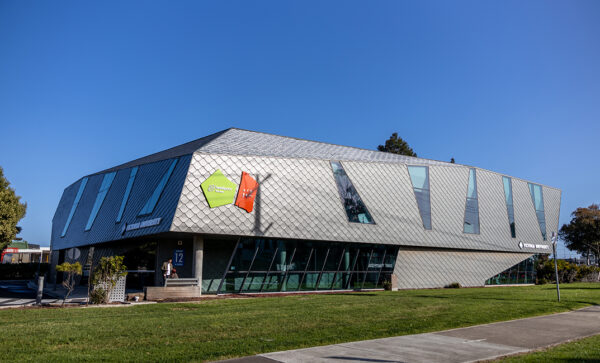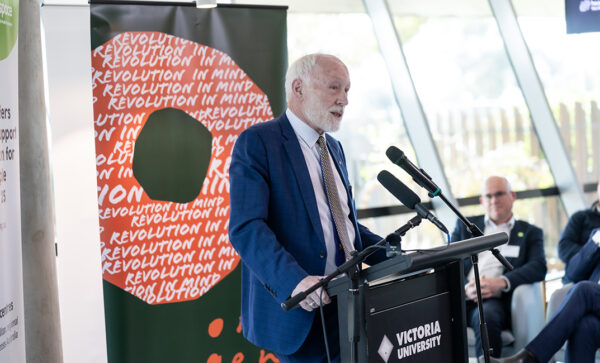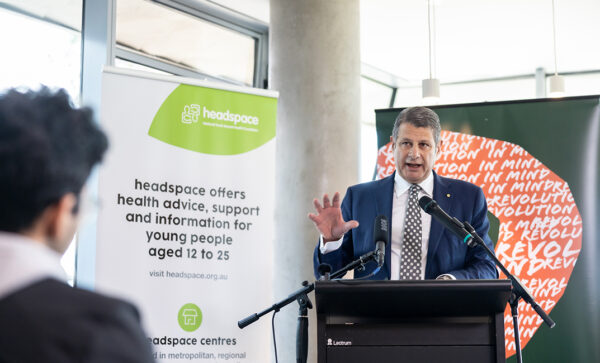By Georgie Preston
Growing up in the West and studying at Victoria University, Tara Cruise said she felt the area needed more mental health services.
Now working as a Clinical Case Manager in Orygen’s Specialist Program, she says Victoria University’s “calming and therapeutic” new headspace centre will address this long-standing need.
The new hub will give students and the wider community in the west improved access to mental health services, as well as provide a training ground for the next generation of youth mental-health workers.
Located at the Werribee campus, the centre is a stone’s throw from Hoppers Crossing station making it a valuable and accessible addition to both the university and the local health precinct which includes Werribee Mercy Hospital.
Acting Chief of Clinical Operations at Orygen Jane Laidlaw says there can sometimes be shame involved in seeking help, particularly for certain demographics such as international students. This makes the on-campus location particularly valuable.
“It really reduces a lot of the barriers to accessing services,” she says.



The centre marks a partnership between Victoria University, headspace and Orygen, exemplifying the benefits of collaboration between federal and state funded programs.
Orygen is a youth mental health organisation, and research, training and policy centre. It was established to address the urgent needs of young people aged 12-25 to improve mental health outcomes now and into the future. What began as a specialised service in early psychosis intervention and care has now expanded to cover mood, personality and anxiety disorders, and major depression.
The organisation was instrumental in founding headspace in 2006, a stronghold in Australian communities across the country which focuses more on general mental health support and education. Between the two, they cover both primary and specialist mental health services.
Across Australia, mental ill-health among young people is on the rise, a situation that is evident in the west.
Since 2019, Orygen-operated headspace centres across the west and northwest of Melbourne have seen a 27 percent increase in the number of young people accessing their services.
“It [will] enable a greater awareness of mental health services in the west and increase accessibility and knowledge of these services,” says Ms Cruise.
She hopes this awareness will extend to students and education staff, increasing the visibility of Orygen and headspace and the work they do.
Ms Laidlaw says Orygen’s partnership with Victoria University allows them to provide about 80 placements across a broad range of professions from clinical psychology to dietetics.
The hub will provide another opportunity for placement and work experience for the next generation of youth mental health workers, helping them to gain the skills, knowledge through first-hand experience to take into their careers.
Having completed a placement at Orygen while a student herself, Ms Cruise says the experience was invaluable.
“The exposure that I got to different people with different mental health diagnoses was just incomparable to reading textbooks.”
As a student she particularly loved the multidisciplinary nature of the team, which allowed her to interact with a broad range of experts. She says having headspace and Orygen co-located in the new hub will allow for more seamless collaboration between the primary and specialist service providers.
“For young people…if they are at headspace and need extra support then they can more easily access, or be referred to Orygen.”
Within the first week of opening, Ms Cruise says she has received interest from multiple students at the university for Orygen’s participation in their research.

